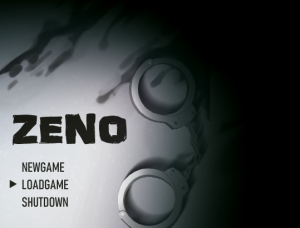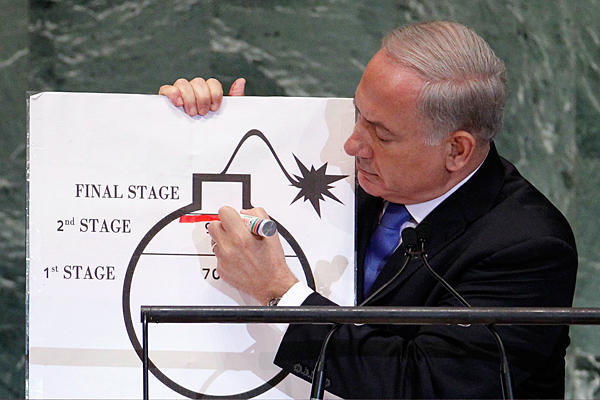
By Gustav Gropp | Lindenlink Contributor
Iran’s Background
Iran’s first nuclear program began in the 60’s under its shah (Mohammad Rezā Shāh Pahlavī) with little success. After the 1979 revolution, a more conservative government came to power, under which a new endeavor in nuclear research began around the mid-1990s. Although Iran claimed it was adhering to the Non-Proliferation Treaty (NPT – originally opened for signing in 1968), documents containing information about a covert program were leaked in 2002. This forced Iran’s then-president Mohammad Khatami to suspend uranium enrichment for fear of severe international sanctions.
Khatami’s successor Mahmoud Ahmadinejad, a much more conservative leader, announced in January 2006 that Iran would resume enrichment work. Three European nations with which Iran had been negotiating (Britain, France and Germany) suspended their long-running talks in response to Iran’s announcement.
Iran has a right to enrich uranium under the NPT, but the International Atomic Energy Agency (IAEA) called for cessation of the program until Iran could answer questions about its earlier, clandestine project. Since this call, the United Nations Security Council and allies of the American government have imposed myriad sanctions on five occasions.
Under the George W. Bush administration, Secretary of State Condoleezza Rice convinced President Bush to push for more diplomacy. Vice President Dick Cheney led a different campaign in favor of more aggressive measures, including the possibility of airstrikes. Bush said that the United States would not negotiate directly with Iran unless it suspended its nuclear program. Bush had previously refused a secret request by Israel to carry out a bombing campaign in Iran’s main nuclear complex. This position allowed Bush to impose sanctions on Iran, which in turn set the stage for the Obama administration to pick up where President Bush left off.
Iran
Iran, situated in one of the world’s most volatile regions, is still moving forward with its nuclear program. Concerned European and American officials believe that Iran’s goal is to construct nuclear weapons. But government officials in Tehran, Iran’s capital, say that it only aims to create electricity without using its oil wealth, which it prefers to sell abroad.
The international community is now more uneasy with Iran’s nuclear energy program than before 2011. The international nuclear inspection officials who observe and evaluate Iran’s nuclear program have found that Tehran has installed almost the correct amount of centrifuges in order to produce nuclear fuel. This is a device used to enrich uranium – the main ingredient in nuclear weapons.
President Obama’s administration and its European allies have imposed heavy sanctions on Iran’s oil exports. The goal: to curb Iran’s nuclear program. Iran has responded with threats to mine the Strait of Hormuz – a strategically placed channel for shipping commerce.
President Obama’s first years in office were spent trying to engage in diplomatic resolutions directly with Iran. These negotiations had little effect as Iran backed away from a provisional agreement to export uranium out of the country for enrichment. American intelligence agencies concluded in 2009 that Iran had enough nuclear fuel to make a rapid dash for a nuclear weapon.
This was a rushed conclusion. Later reports showed that Iran had deliberately stopped short of the vital last steps to make a bomb.
Iran had also kept secret the existence of a furtive underground plant near its holy city of Qom, southwest of Tehran. The U.S., Britain and France released this information after the Iranian government found that the secret project was uncovered.
Israeli Prime Minister Benjamin Netanyahu urged the United Nations General Assembly and specifically the U.S. on Sept. 27 to make a concise indication as to where the ‘red line’ is for Iran’s progress towards nuclear weapon capability. Netanyahu made use of an arbitrary aid in his presentation, using a figure of a bomb indicating the levels at which Iran’s uranium enrichment currently stands. The prime minister also says that this information on the program is public information released by the International Atomic Energy Agency.
The Obama administration refused to set an ultimatum even though Israel believes that Iran will be on the brink of a nuclear weapon in less than a year. The Iranian ambassador to the UN, Eshagh al-Habib, said that Israel’s statements are “entirely baseless.” In an interview with CNN, the Iranian leader expressed his distaste at Israel’s stance, posing the question, “Why should the world be managed in such a way that an individual can allow himself to threaten a rich and deeply rooted historical country such as Iran, a great country such as Iran, based on an excuse of his own fabrication?”
Republican presidential candidate Mitt Romney has attacked Obama’s diplomatic stance on Iran, saying that Obama’s sanctions have had little effect on Iran’s nuclear program and that more aggressive methods should be used to resolve the issue. Obama responded to Romney’s statement saying, “If Governor Romney is suggesting that we should start another war, he should say so.”
Dr. Joseph Cernik, a professor of political science at Lindenwood, told Lindenlink in an interview that the political stance of both President Obama and Gov. Romney has little difference with regards to Iran. He said that both men would like to see the situation resolved; the difference in their positions is rather a “nuance” than opposite. When asked about Obama’s challenge to Romney above, Cernik said, “I think the reason he was doing that is more for political [motives]”
With Israel calling for a more assertive response from the United States, and Romney’s scathing attacks on Obama policy, the United States presidential election may yet hold a few surprises. Cernik believes that Americans allow little foreign policy to sway their vote.
Lindenwood senior Yanid Castellón, a political science major, agrees with Cernik. “The Iran issue could be one of the conflicts that the next president will be looking to fix,” Castellón said. “But I highly doubt it will have any significant impact on the elections.”
Netanyahu
Israeli Prime Minister Benjamin “Bibi” Netanyahu is the first prime minister to have been born in Israel after the founding of the State. He currently holds several positions, including Chairman of the Likud Party, Knesset member, Economic Strategy Minister, Health Minister and Pensioner Affairs Minister.
Netanyahu served as Israel’s ambassador to the U.N., and has served as Israeli Prime Minister before from 1996 to 1999, after which he briefly left politics. He then returned as the Foreign Minister, and then the Finance Minister. In December 2005, Netanyahu assumed leadership of the Likud Party once again. After a second place finish in the 2009 parliamentary elections, Netanyahu formed a coalition government of which he is now again Prime Minister.
Netanyahu has a long background in the Israeli special forces, where he rose to the rank of captain before being discharged. Prime Minister Benjamin Netanyahu is 62 years old.
| The Daily Show with Jon Stewart | Mon – Thurs 11p / 10c | |||
| Bore Games | ||||
|
||||














